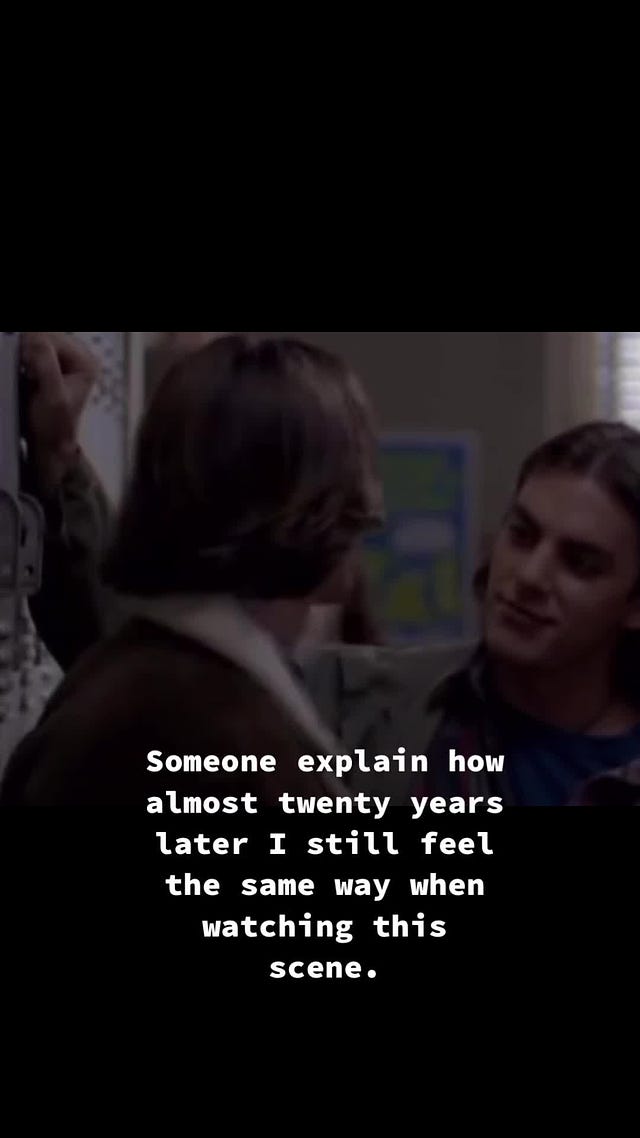How Much Nostalgia Is Too Much Nostalgia?
For some caregivers, reminiscing is a coping mechanism. But is “looking back” always healthy? Experts weigh in.

At some point in September, I started listening to “Hands,” by Jewel, a lot. In the shower. On trips to the grocery store. While vacuuming. I don’t know what came over me. One day, the song popped into my head; the next, I was playing it on repeat like it was 1998, only now I was an adult. With wrinkles.
I played “Hands” so many times that, according to Spotify Unwrapped, it was my fifteenth most streamed track of the year. Shockingly, only one new song made my list at all (“Vigilante Shit,” by Taylor Swift). That means I listened to Jewel’s fourth most popular single (and Sarah McLachlan’s “Building a Mystery,” which also cracked my top 20, if you can believe it) more than anything from Harry’s House or Renaissance.
I’ve always been a nostalgic person (favorite year: 1996), but since moving to Long Island to be closer to my father, it seems I’ve crossed an invisible line into the past. This week, I had a random thought that I might finally like My So-Called Life’s Brian Krakow more than I do Jordan Catalano (the true mark of adulthood), only to be served the iconic “hallway scene” on TikTok the very next day. (Is TikTok reading my mind?)
I rewatched the clip at least a dozen times, but it only took one viewing to restore my teenage conviction that Jordan Catalano is God. (Fun fact: I bought the MSCL soundtrack for the Buffalo Tom song that plays in this scene, but the song is not actually on the album. When my teen self realized as much, I threw the CD at my bedroom wall.)
I don’t mean to read too much into my nostalgia. If I were unique in my feelings, Netflix wouldn’t have greenlit Stranger Things, Y2K fashion wouldn’t be making a comeback, and Apple wouldn’t have cast Cookie Monster in a commercial. But lately, my longing for the past feels a little sad, like I’ve come to believe, at 39, that my best days are already behind me. I know that’s not true, but the thought alone begs some introspection: Have I reached peak nostalgia?
First, an understanding of how nostalgia operates. “Nostalgia activates two circuits in our brains,” Krista Jordan, PhD, a clinical psychologist based in Austin, Texas, tells me. “One is the memory circuit, which you would expect.” The other is the reward circuit, or the part of the brain that releases the feel-good chemical dopamine into our systems. “It’s the same circuit that’s activated if you eat Ben & Jerry’s or snort cocaine,” Dr. Jordan explains.
It makes sense then that we might turn to nostalgia in hard times. “If we’re in a state of uncertainty or distress, some part of our brain—in a healthy person—is going to be looking for a way to feel better,” Dr. Jordan says. (Perhaps that’s why so many people turned to comfort movies in the early days of the pandemic.) “When a destabilizing event leads to trauma or stress, nostalgia reminds us that we’ve felt stability and warmth before, and we can return to that again,” Erin Hadley, PhD, a clinical psychologist in Philadelphia, Pennsylvania, adds over email.
The catch is that not everyone processes nostalgia with that sort of productive optimism. As Dr. Jordan points out, research shows that people with a tendency towards anxiety and depression can actually feel worse after indulging in nostalgia. “They tend to have a pessimistic orientation,” she explains. “The depressive orientation is, ‘Nothing’s ever going to get better.’ The anxious orientation is, ‘Something bad is about to happen.’”
Whereas a healthy person might use their nostalgia to “fuel their optimism for the future” (telling themselves after a breakup, for example, “I’ve had experiences of being loved and cared for in the past, and I know that can happen again in the future”), a person with depression or anxiety might compare their positive nostalgia to whatever negative feelings they’re experiencing in the moment and conclude they’re worse off today than they were a decade ago.
Hearing this from Dr. Jordan reminded me of something I recently told a friend: “I don’t want to go back to the nineties because my life was better then, but because I felt more hopeful then. I really believed the only way to go was up.” And, for a while, I was right.
If nostalgia has been painful for me lately, perhaps it’s because, after years of uncertainty and burnout (due to caregiving, due to the pandemic), I’ve come to think of my past all wrong. It’s not a referendum on where I am today, but a reminder that I’ve forged my own path before—and will again.
Thank you for reading! For future stories, I’m looking to talk to people about:
Dating and family planning as a caregiver.
Being the significant other to a caregiver.
Hiring and managing paid caregivers.
If you’re interested in speaking with me on these topics—or know someone who might be—please reply to this email.
Have a great week!





This is so interesting, Patti! You know, I think my new preferred cut of jean (Y2K-inspired) does give me a cocaine-esque bump every time I put them on. And this also helps explain why after my dad died around ten years ago I felt oddly comforted by watching The Descendants over and over and over again.
Love this and thank you for linking that MSCL scene it is *the best* ♥️